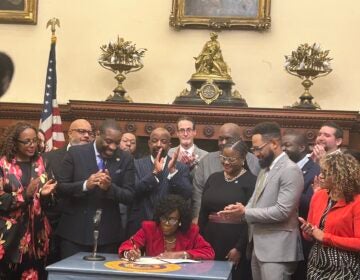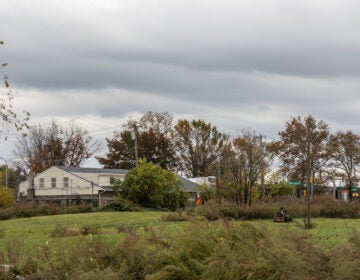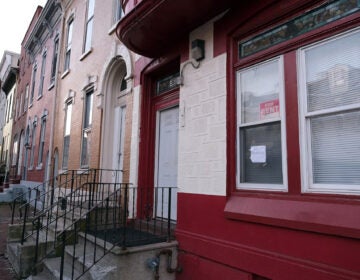Philly training program for minority developers will help fuel Mayor Parker’s housing plan. ‘An opportunity to change your life.’
The administration wants to ramp up homebuilding on vacant land. Graduates of the Minority Developer Program are positioned to do the work.
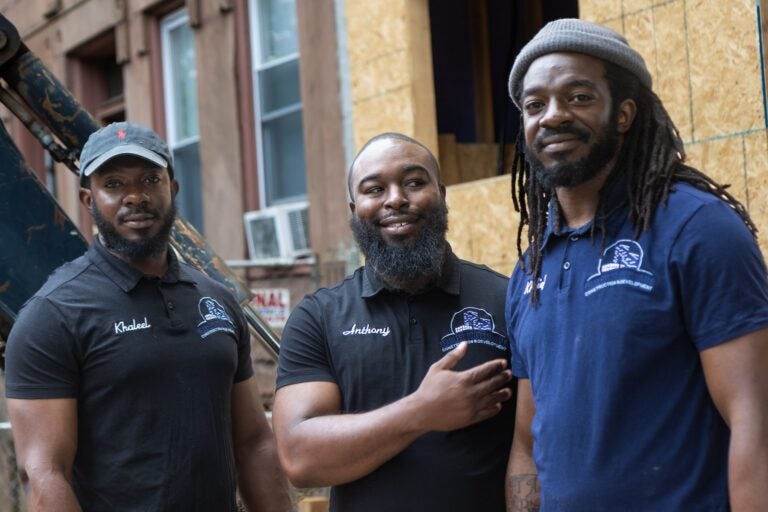
Seamless Professionals developers Khaleel Evans (left) Anthony Bright (center) and Khalief Evans (right) at one of their properties on Diamond Street in Philadelphia. (Kimberly Paynter/WHYY)
Have a question about Philly’s neighborhoods or the systems that shape them? PlanPhilly reporters want to hear from you! Ask us a question or send us a story idea you think we should cover.
Philadelphia Mayor Cherelle Parker has vowed to put the Turn the Key program “on steroids” as part of her administration’s signature housing initiative, which is expected to include considerable funding to expand the popular homebuying effort.
That’s welcome news for middle-income renters looking to become first-time homeowners in a tight housing market.
It’s also encouraging for real estate developers positioned to build and sell those properties — a pool that includes minority-owned companies trained by the city. So far, about a third of Turn the Key projects have gone to people of color.
“When you get into city contracts and government contracts, it’s an opportunity to change your life and your family’s life,” said Anthony Bright, a managing partner at Seamless Pros Construction and Development, a Black-owned business.
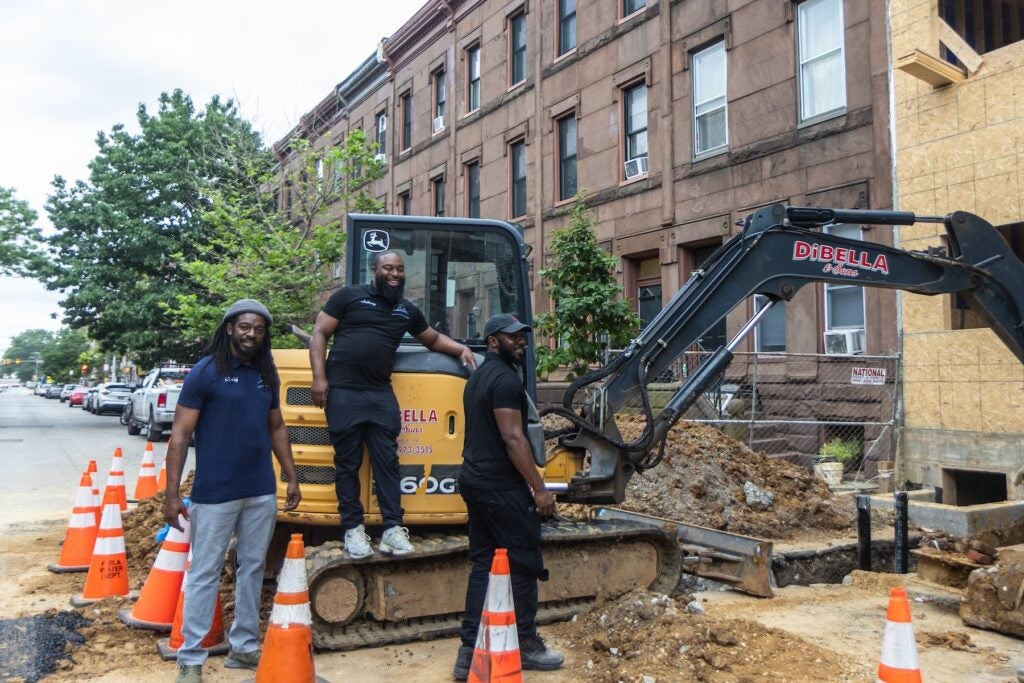
The Housing Opportunities Made Easy, or H.O.M.E. initiative, is centered on creating or preserving 30,000 units of housing.
More than 1,000 of those homes will be built through Turn the Key, which aims to increase the city’s supply of affordable housing by selling city-owned parcels for cheap.
The Parker administration is “guaranteeing” at least 280 new homes under the initiative, which will also tackle the program’s existing backlog. That currently sits around 800 units.
Like Bright, veteran developer Ed Pridgen is thrilled his company will have the opportunity to bid on more Turn the Key projects. He’s already been selected to build nearly 50 homes through the program, after decades of being denied the opportunity to do similar work.
“I couldn’t be more pleased,” said Pridgen, president of The Prime Corporation. “I’ve always been in a fight to get an opportunity.”
Pridgen and Bright credit the Philadelphia Housing Development Corporation and its free Minority Developer Program for putting them in a position to grow their respective businesses.
Launched in 2022, the technical assistance program is aimed at making real estate development more equitable in Philadelphia, where white-owned companies are behind the overwhelming majority of ground-up developments.
Over the course of a year, participants spend hours learning how to navigate the bureaucracies baked into city contracts to develop public parcels. That includes lessons on the nuances of responding to a request for proposal, the hurdles of the city’s land disposition process and the requirements of various city agencies, including the Department of Licenses and Inspections and the Streets Department.
Along the way, they also receive one-on-one counseling on their businesses, connect with mentors and learn about avenues for accessing the kind of capital minority developers often struggle to secure. The city-backed Philadelphia Accelerator Fund works closely with the program.
The goal is to prepare working developers to deliver on contracts to build and sell brand new properties on city-owned parcels held by the Philadelphia Land Bank.
“Going from one or two units of housing or maybe doing rehab work to ground up new construction, which is a very different type of construction. High risk, high threshold for approvals on the financial side, also higher level of expectation,” said Angel Rodriguez, executive director of the land bank.
To date, the program has trained 23 developers over two cohorts. Many of them were selected through referrals from the Black Squirrel Collective or the Urban Developers Association.
Bright co-founded Seamless Pros with his best friend Khalief Evans. The two grew up together in West Oak Lane.
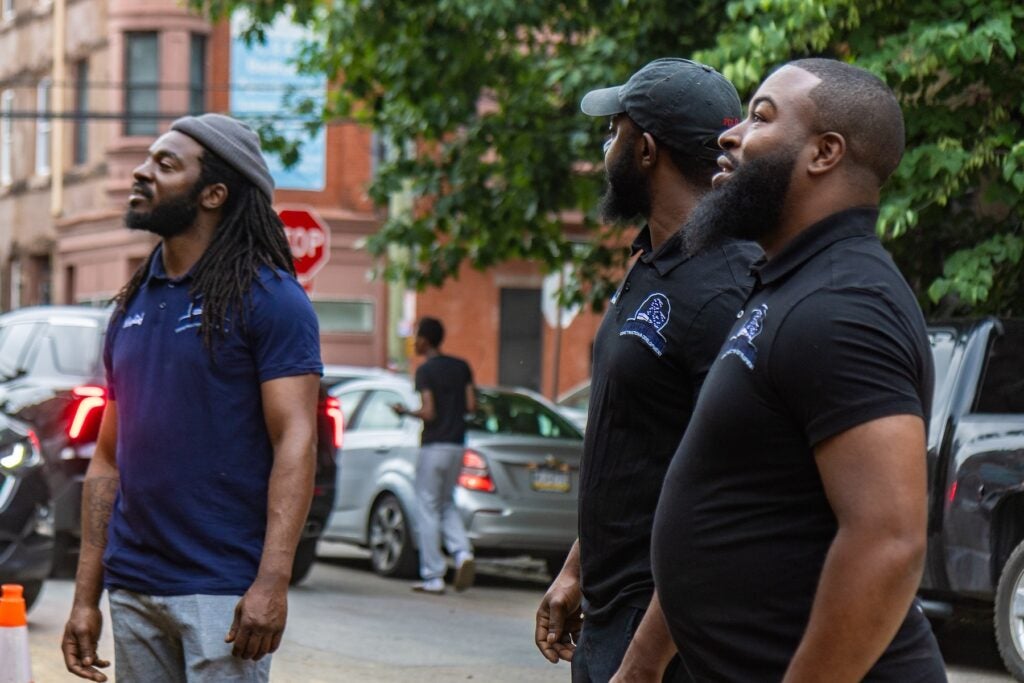
Before going through the Minority Developer Program, their company mostly did hundreds of renovation and carpentry projects. The outfit now has contracts to build 25 Turn the Key homes in parts of West and North Philadelphia.
And they want to become “prime players” in the affordable housing space. Evans said he finally feels like they are finally in a position to do that.
“It’s very challenging just obtaining the financing needed in order to get the developments done. With the city offering the land at a very economical rate, in addition to assisting you through the pre-development phase in order to get approved with the permits, it has been instrumental in getting us to this point ,” Evans said.
For Bright, the program has helped level the playing field, providing knowledge that would have been “virtually impossible” to obtain without guidance.
The training was also an eye-opener, he said, particularly when it comes to the politics of building on city-owned land.
Getting parcels out of the land bank, for example, requires legislation from a district councilmember, meaning developers often rely on relationships with lawmakers to get to construction.
“Dealing with everyone and their own personalities, winning people over, and getting them to believe in you, is a task. It’s not like you just put in an application, and you’re in the minority developer program and things are just smooth sailing. No, it’s a mixture of everything clicking on high cylinders,” Bright said.
The company hopes to break ground this summer on their first Turn the Key developments.
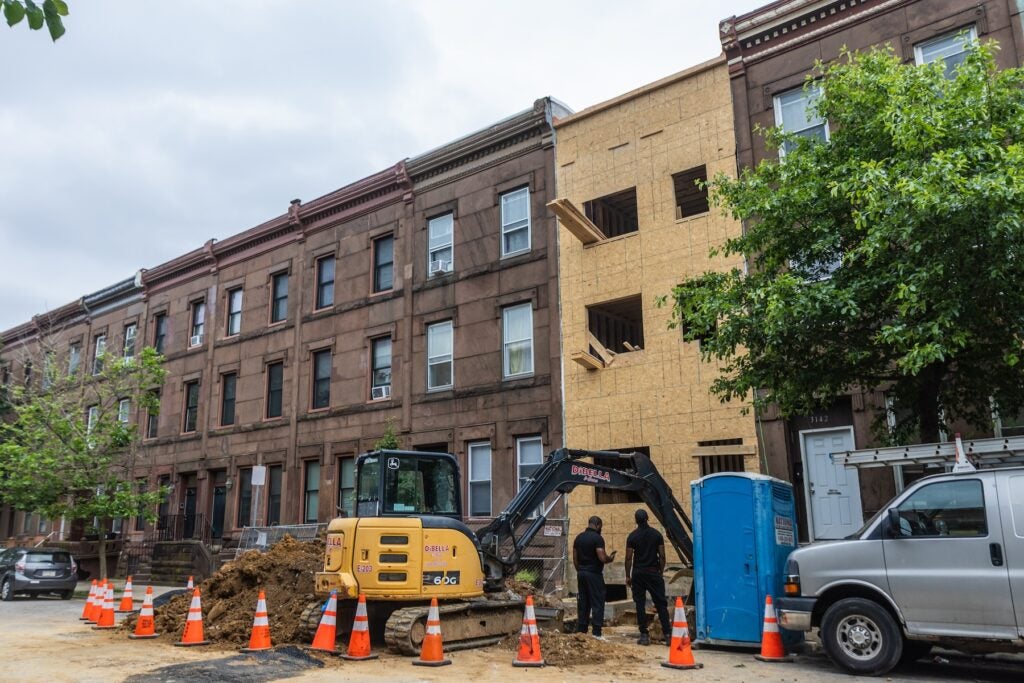

Get daily updates from WHYY News!
WHYY is your source for fact-based, in-depth journalism and information. As a nonprofit organization, we rely on financial support from readers like you. Please give today.






